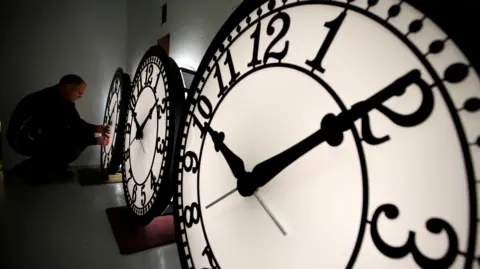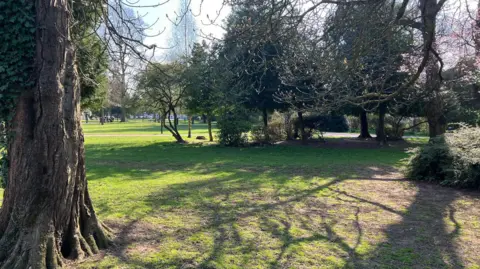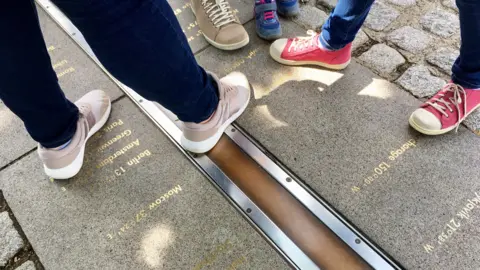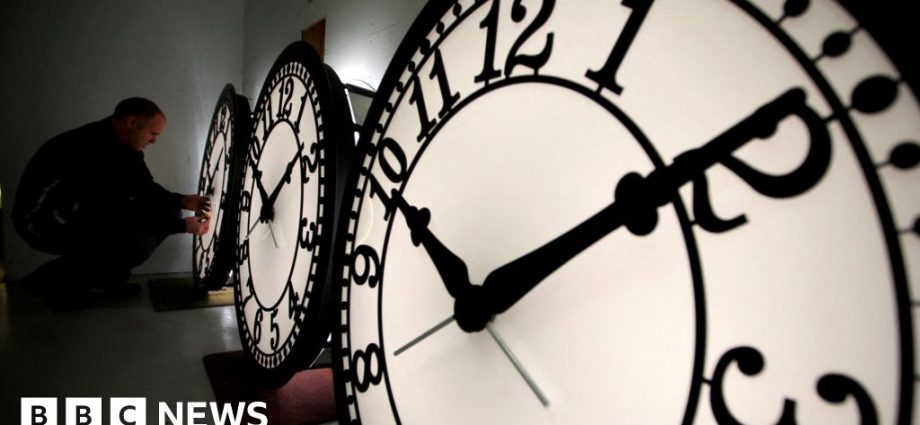BBC political reporter, Bedfordshire
 Reuters
ReutersFor many who dislike dark winter nights, this weekend will be one to savour as the clocks spring forward by an hour on Sunday 30 March from 01:00 Greenwich Mean Time (GMT).
This marks the end for some and the gloom that can be caused by GMT, and the start of British Summer Time (BST) and lighter evenings.
However, the Labour MP for Dunstable and Leighton Buzzard, Alex Mayer, has called for a “major overhaul of time” and a conversation about “how best to use our nation’s daylight hours” in a parliamentary debate.
But why do the clocks go back and forward in the UK each year?
 Alex Mayer
Alex MayerThe process of moving the clocks forward by one hour in the summer was started during World War One in Germany in 1916, as a way to save energy resources during lighter evenings.
Weeks later other countries followed suit, including the UK, where it was named British Summer Time. During World War Two in 1941, the then-prime minister Sir Winston Churchill introduced a system where clocks were advanced by two hours.
This meant that during winter, while clocks went back an hour they were still one hour ahead of GMT to increase productivity during daylight.
This ended in 1945, but briefly returned two years later due to severe fuel shortages that summer.
What does the debate involve?
 Amy Holmes/BBC
Amy Holmes/BBCMayer wants a return to how things were in World War Two and is hosting an adjournment debate in Parliament. These debates are a chance for MPs to raise an issue and get a response from a minister but do not include a vote afterwards.
Mayer has argued that a return to what is known as “Churchill Time” could help save a combined £485m in yearly electricity bills – and reduce carbon emissions by more than 400,000 tonnes.
She called this “a low-cost, high-impact proposal” to “help meet climate goals, reduce energy bills, and boost our High Streets by making better use of the daylight hours we already have”.
She is not the first MP to bring this discussion to Westminster.
In 2012, a bid by Conservative MP Rebecca Harris to move UK clocks forward by an hour for a three-year trial period failed after the legislation ran out of time in the House of Commons.
In 1968, there was a three-year experiment to keep BST in place throughout the year. On average, there was a huge reduction in road casualties, but this has since been attributed to new drink-driving legislation in 1967.
What are the arguments against the change?
 Getty Images
Getty ImagesDuring that experiment in northern Scotland, there was a net increase in the number of people killed or seriously injured on the roads, because during the darkest days of December sunrise would not take place until 10:00.
In 2012, when MPs voted against it, many objections focused on the impact of a change on road accidents.
Critics argued it would make the lives of outdoor workers harder and increase road accidents due to the darker mornings – although those in favour of a change argue it would reduce evening accidents.
Other sources have expressed concerns about the negative impact of extended daylight evenings to health and sleep patterns.
Recent studies suggested modern power consumption habits mean energy savings made by reducing evening lighting were now offset by increased energy consumption, in the warmer lighter evenings.
Only Parliament has the power to alter daylight saving times and there are currently no plans to do this in the UK.



